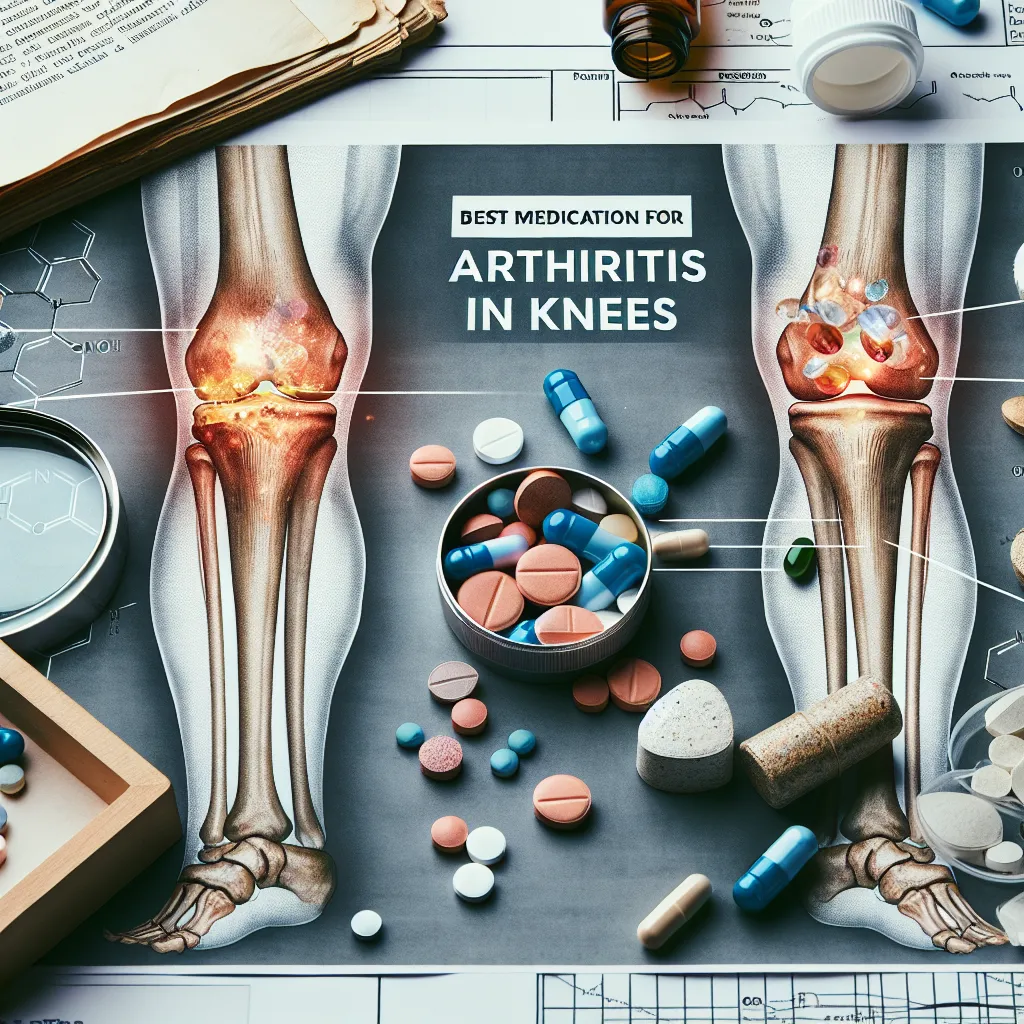Best Medication for Arthritis in Knees
Best Medication for Arthritis in Knees
Arthritis is a common condition that affects millions of people around the world. It can cause pain, stiffness, and swelling in the joints, making it difficult to perform daily activities. One of the most commonly affected areas is the knees. If you or someone you know is suffering from knee arthritis, finding the best medication to manage the symptoms is crucial. In this article, we will explore some of the top medications available for arthritis in knees.
Nonsteroidal Anti-Inflammatory Drugs (NSAIDs)
NSAIDs are commonly used to relieve pain and reduce inflammation associated with arthritis. They work by blocking certain enzymes in the body that are responsible for producing prostaglandins, which contribute to pain and inflammation. Some popular NSAIDs include ibuprofen (Advil, Motrin), naproxen (Aleve), and celecoxib (Celebrex).
These medications are typically available over the counter or with a prescription, depending on the strength and dosage required. NSAIDs can help alleviate knee pain and swelling caused by arthritis, allowing individuals to move more comfortably. However, it is important to use them as directed and be aware of potential side effects such as stomach irritation, ulcers, and increased risk of heart problems.
Corticosteroids
Corticosteroids are powerful anti-inflammatory medications that can be injected directly into the knee joint to provide fast and effective relief from arthritis symptoms. These injections can help reduce pain and inflammation, allowing individuals to regain mobility and function. Corticosteroid injections are often recommended for individuals who do not respond well to NSAIDs or have more severe symptoms.
It is important to note that corticosteroid injections are usually administered by a healthcare professional and not intended for long-term use. They can provide temporary relief, but repeated injections may lead to joint damage or other complications. Therefore, it is important to discuss the risks and benefits with your healthcare provider.
Viscosupplementation
Viscosupplementation involves injecting hyaluronic acid into the knee joint to improve lubrication and cushioning. Hyaluronic acid is a natural substance found in joint fluid, and by injecting it into the knee, it can help reduce pain and improve joint function. This treatment option is often recommended for individuals with mild to moderate knee arthritis.
Although viscosupplementation can provide relief for some individuals, its effectiveness varies from person to person. The injections are typically given as a series over several weeks, and the results can last for several months. Side effects are generally minimal but may include pain or swelling at the injection site.
Disease-Modifying Antirheumatic Drugs (DMARDs)
DMARDs are a class of medications commonly used to treat various forms of arthritis, including knee arthritis. Unlike NSAIDs, which primarily provide symptomatic relief, DMARDs target the underlying cause of arthritis by modifying the immune system response. This can help slow down the progression of the disease and preserve joint function.
Some commonly prescribed DMARDs for knee arthritis include methotrexate, hydroxychloroquine, and sulfasalazine. These medications are usually taken orally and may require regular blood tests to monitor their effects on the body. It is important to note that DMARDs may take several weeks or months to show their full effect, and they can have potential side effects that need to be discussed with a healthcare professional.
Opioids
Opioids are strong pain-relieving medications that may be prescribed for severe knee arthritis pain when other treatments have not provided adequate relief. They work by binding to opioid receptors in the brain and spinal cord, blocking pain signals. However, due to their potential for addiction and other side effects, opioids are generally reserved for short-term use or in specific cases where other options have been exhausted.

It is important to follow the prescribed dosage and duration when taking opioids, as misuse or prolonged use can lead to dependence and other complications. Regular communication with a healthcare provider is crucial to managing pain effectively while minimizing potential risks.
Conclusion
When it comes to managing knee arthritis, finding the best medication often involves a trial-and-error process. What works for one person may not work for another, as individual responses and preferences can vary. It is essential to consult with a knowledgeable healthcare professional who can evaluate your specific condition and recommend the most suitable treatment options.
Remember, medication alone may not be sufficient to manage knee arthritis. Incorporating lifestyle changes such as regular exercise, maintaining a healthy weight, and using assistive devices when needed can also contribute to improved joint health and overall well-being.
